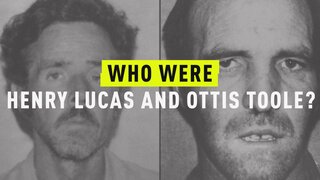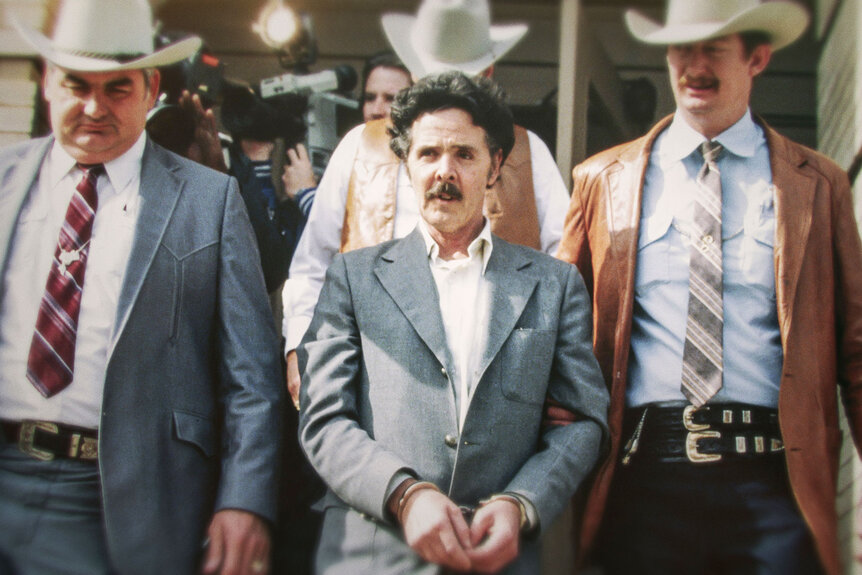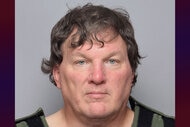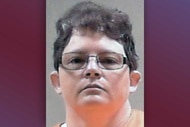Create a free profile to get unlimited access to exclusive videos, breaking news, sweepstakes, and more!
What Happened To Henry Lee Lucas, Subject Of Netflix's 'The Confession Killer'?
Lucas was sentenced to death, but avoided execution thanks to a future president of the United States

A new Netflix documentary makes a compelling argument that a drifter who claimed to be one of the most prolific killers in history made much of it up. But what happened to Henry Lee Lucas?
Lucas and his false confessions are given a deep dive in the gripping Netflix documentary series "The Confession Killer," which recounts his convictions for murder and how dozens of cold cases linked to him may now need re-evaluation.
Unfortunately, Lucas is no longer able to tell anyone what was real and what was a fabrication as he died in prison from heart failure on March 12, 2001, according to an Associated Press obituary.
But four years prior, he was spared from execution via lethal injection by then-Texas Gov. George W. Bush, who would soon go on to become President of the United States. Lucas was the only inmate in Texas who received a commutation from Bush during his entire tenure as governor, according to the AP.
Bush cited Lucas' conviction for killing an unidentified hiker known as Orange Socks as the reason for the commutation: the only evidence linking Henry Lee Lucas to the crime was a confession he ended up recanting.
The victim herself was only identified in 2019 as 23-year-old Debra Jackson, though the cold case remains unsolved, according to CBS News' Austin affiliate.
''As a supporter of the death penalty for those who commit horrible crimes,'' Bush said in a statement at the time, ''I feel a special obligation to make sure the State of Texas never executes a person for a crime they may not have committed. I take this action so that all Texans can continue to trust the integrity and fairness of our criminal justice system.''
An investigation of Lucas' alibi had turned up work records that indicated that he was in Florida at the time of Jackson's killing.
''I am reluctant to second-guess a verdict of a jury and the courts,'' then-Gov. Bush said. ''However, the clemency process is intended as a fail-safe for unusual or exceptional circumstances. In this case, at the time it made its decision, the jury did not know and could not have known that Henry Lee Lucas had a pattern of lying and confessing to crimes that evidence later proved he did not commit.''
Although it now seems clear that Lucas did not kill hundreds of people as he had previously claimed, officials who prosecuted him believed he was responsible for a number of deaths –– a serial killer who didn't know how many lives he'd actually snuffed out.
'I don't think he knew exactly,'' prosecutor Ken Anderson told the AP in 2001. ''It's difficult to imagine you can rely on anything he said, but the fact remains he was a serial killer, even though we're unable to pinpoint the exact number.''
Lucas himself had told news outlets that he was trying to sow chaos in law enforcement with his false confessions. ''I made the police look stupid. I was out to wreck Texas law enforcement," he said in 1999, according to his obituary.
Despite his many false claims, it is generally believed that Lucas killed at least three people. Beginning in 1960, Lucas confessed and was convicted of killing his own mother in Virginia by slashing her throat with a knife and leaving her for dead –– but he was released on parole 10 years after the killing.
Lucas became a drifter after his release from prison in the 1970s and eventually made his way to Florida where he befriended and moved in with Ottis Toole, another killer, and his family, according to an archived story from The New York Times. Freida "Becky" Powell, Toole's 15-year-old niece, also eventually moved into the house in 1980 and Lucas began a relationship with her, ultimately convincing her to leave Florida with him, according to the Times.
After living for some time in California, they made their way to Texas in 1982, striking up a friendship and living with 80-year-old Katherine Rich. When Powell and Rich both disappeared, police immediately named Lucas as a suspect –– as recounted in "The Confession Killer."
The first episode of "The Confession Killer" lays out how Lucas carelessly admitted to an outstanding arrest warrant during a police interview in 1983 and was shortly arrested after that.
After confessing to killing both Powell and Rich while in custody and leading police to the sites of their remains, Lucas continued his confessions –– ultimately claiming to have killed nearly 600 people. Those confessions were used to close a large number of previously unsolved cases, though many of those are now in question given Lucas' eventual recantations. Even now, cases that Lucas falsely confessed to are being reopened even though he's been dead for nearly 20 years.
Utah police re-opened an investigation into the 40-year-old murder of Marla Scharp just last month after investigators uncovered evidence proving Lucas likely couldn't have killed her, according to The Salt Lake Tribune.
"Every case that Henry Lee Lucas falsely confessed to is a cold case,” a Utah cold case investigator previously told the Salt Lake Tribune. “It really has not been solved.”
All five episodes of "The Confession Killer" will be available to stream on Netflix starting Dec. 6.



























